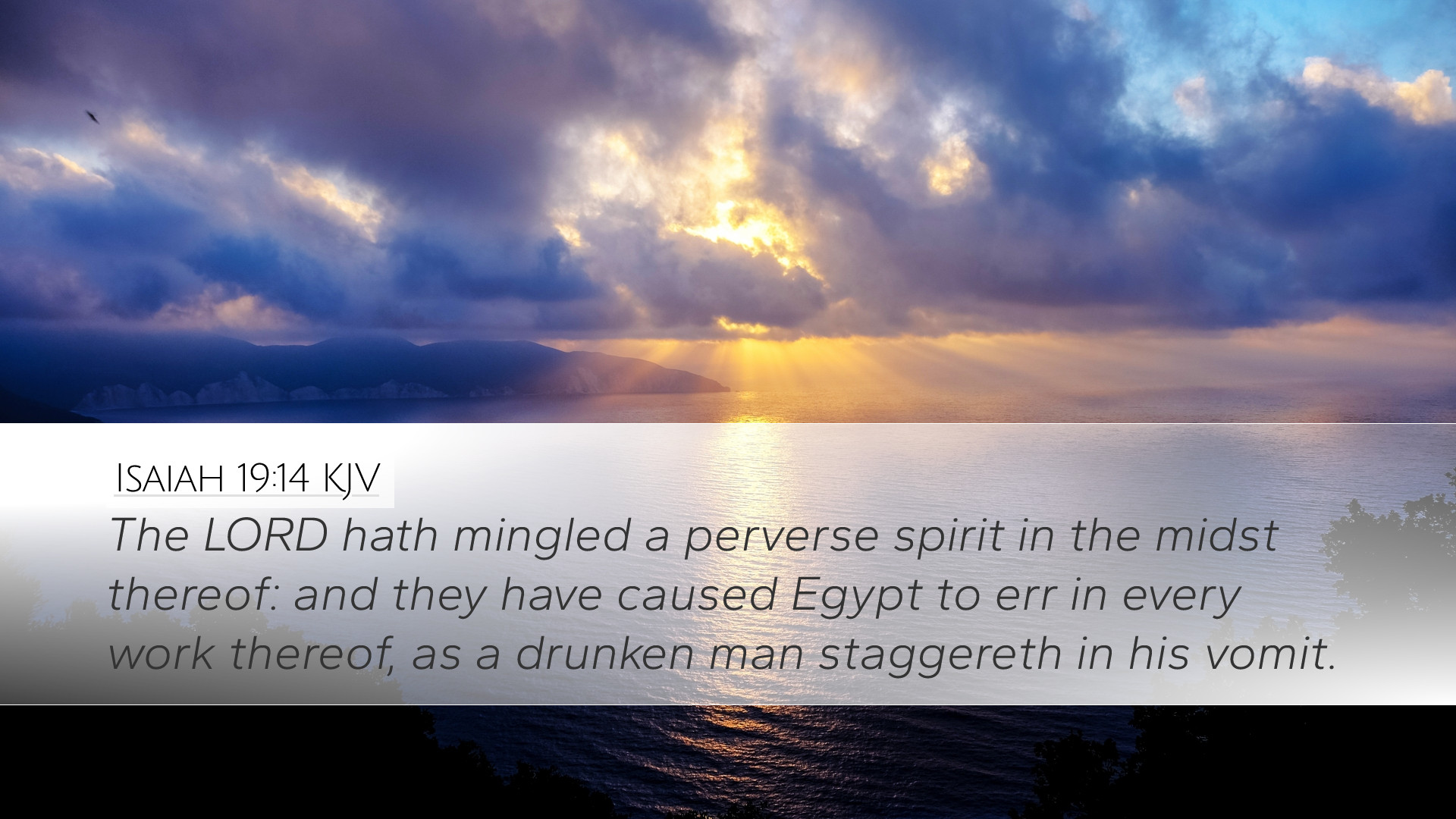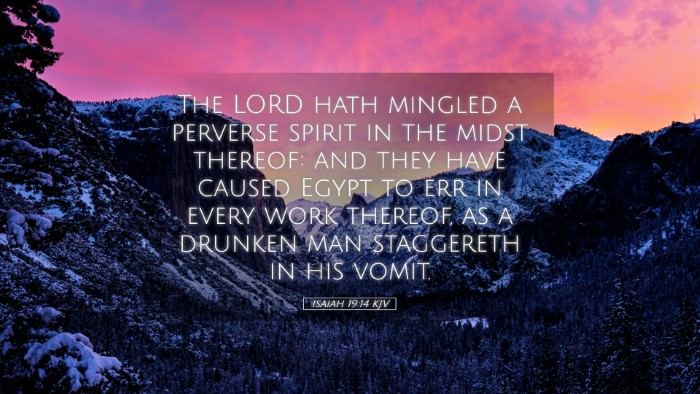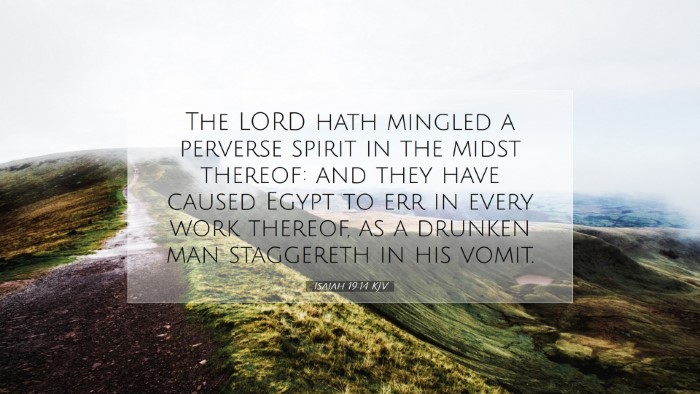Commentary on Isaiah 19:14
Verse: "The Lord has mingled a perverse spirit in the midst thereof; and they have caused Egypt to err in every work thereof, as a drunken man staggereth in his vomit."
Introduction
In Isaiah 19:14, we find a profound statement regarding God’s judgment on Egypt, using vivid imagery to illustrate the chaotic state of the nation. The text reveals the consequences of rebellion against God and the resulting moral decay. This commentary brings together insights from prominent public domain sources to elaborate on the theological implications of this verse.
The Divine Judgment
Matthew Henry expresses that this verse serves as a dire warning about the consequences of turning away from divine wisdom. The phrase "mingled a perverse spirit" indicates that God allowed a corrupting influence to take hold in the hearts and minds of the people, leading them to their downfall. Such a spirit creates confusion and a lack of clear judgment, much like the unsteady state of a drunken man.
Albert Barnes further elaborates, noting that the "perverse spirit" leads to errant thoughts and actions within the nation. This indicates a divine response to their unfaithfulness and idolatry, suggesting that a judgmental spirit is not merely punitive but serves a corrective purpose. Barnes points out that God's ability to instill such a spirit serves as a testament to His sovereignty over the nations and human affairs.
The Imagery of Confusion
The imagery of staggering as a drunkard emphasizes disorientation and the inability to perceive reality accurately. Adam Clarke reflects on this analogy, explaining that just as a drunk person loses control and cannot discern the right course, so the Egyptians in their sin would lose their ability to navigate moral and societal matters. Clarke asserts that this state of confusion demonstrates the depths of their folly and ignorance caused by God’s judgment.
- Spiritual Blindness: The text illustrates spiritual blindness that prevents discernment.
- Moral Ambiguity: The inability to distinguish right from wrong leads to societal chaos.
- Call to Repentance: This chaos serves as a backdrop urging the need for repentance and return to God.
Theological Insights
This verse raises several significant theological themes that resonate throughout Scripture:
- Divine Sovereignty: The control that God exerts over the nations is unmistakably highlighted in this passage. His actions bring about a demonstration of power and authority.
- Human Responsibility: While God's judgment is evident, the culpability of humanity for their choices and rebellion against divine law is also stressed.
- Moral Degradation: The leading of a nation into sin showcases the danger of turning away from God, which can lead to national and spiritual ruin.
Applications for Today
This verse offers poignant lessons for contemporary readers, particularly pastors, students, and scholars:
- Warning Against Moral Decay: Leaders and individuals should be vigilant against the influences that lead to spiritual and moral degradation.
- Call for Spiritual Discernment: There is a need for earnest prayer and seeking God’s wisdom to combat the spirit of confusion in our own communities.
- Hope for Restoration: Despite the dire warnings, the underlying message is that repentance can lead to healing, as seen in God's dealings with nations throughout Scripture.
Conclusion
Isaiah 19:14 serves as a stark reminder of the consequences of a nation’s rebellion against God's moral order. With commentary from Matthew Henry, Albert Barnes, and Adam Clarke, we glean valuable insights regarding God’s sovereignty, the reality of divine judgment, and the importance of repentance. As we reflect on this verse, may we strive to live in a manner that glorifies God and avoids the disarray brought about by a perverse spirit.


